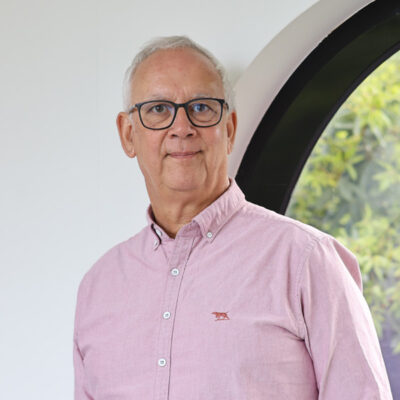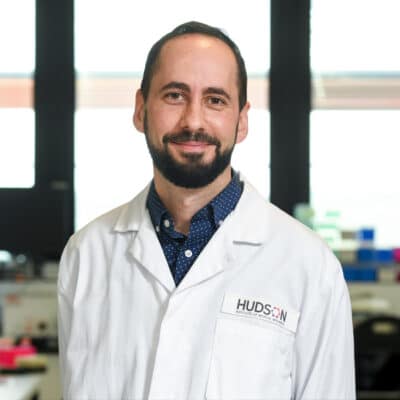3MT winner’s recipe for cooking up a baby boy
By Rob Clancy, staff writer
A Hudson Institute PhD student has used her recipe for creating a baby boy to claim top prize in the School of Clinical Sciences (SCS) Three Minute Thesis (3MT) competition.

Brittany Vining from the Centre for Endocrinology and Metabolism’s Sex Development group won her way through the Hudson Institute 3MT heats before taking first prize in the SCS 3MT competition this week.
Cooking analogy
Her presentation was titled “Recipe for making a baby boy”, using a cooking analogy – featuring her two favourite celebrity chefs, Nigella Lawson and Gordon Ramsay – to illustrate the steps the human body takes in the development of male offspring.
The entertaining presentation (see video below) managed to illustrate the nature of her PhD research in a concise but engaging way.
“I’m a second year PhD student in the Sex Development lab (CEM), with a project titled Novel gene targets of SOX9,” Brittany said.
“SOX9 is a ‘hub gene’ in testis formation during embryo development, switching on many targets to masculinise the testis and develop the embryo as male sex.”
“However, many known targets of SOX9 are also genes implicated in differences of sex development (DSD), and we hypothesise that many of the unknown targets of SOX9 are also DSD genes.”
“Condensing an entire four years of research into three minutes is an extremely challenging feat, but when working within the realm of ‘Cells Kitchen’ it becomes a lot easier to explain that we’re really just trying to uncover the biological recipe book!” she said.
In this article
About Hudson Institute
Hudson Institute’ s research programs deliver in three areas of medical need – inflammation, cancer, women’s and newborn health. More
Hudson News
Get the inside view on discoveries and patient stories
“Thank you Hudson Institute researchers. Your work brings such hope to all women with ovarian cancer knowing that potentially women in the future won't have to go through what we have!”





